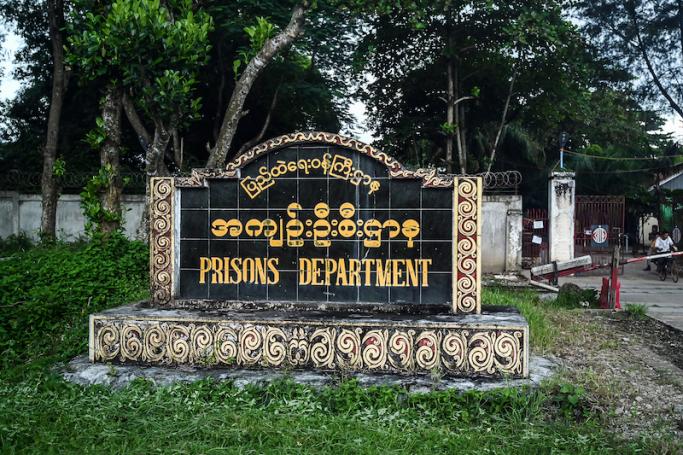All wars see innocent victims caught in the crossfire. But a recent deadly Myanmar resistance group attack against a junta target has sparked pushback.
The National Unity Government (NUG) has spoken out against the 18 October attack at Insein Prison that resulted in eight people killed and 12 people injured.
According to local media, visiting family members of jailed political prisoners were among those killed and injured. One of those killed is said to be the mother of a prominent activist known as Ko James. She had gone to the prison to deliver food to her son.
At least two bombs exploded hitting the crowd queuing to drop off parcels for inmates at the prison.
The NUG statement expressed sorrow for the deaths while censuring and condemning any person or group committing an act that harms the civilian population. It said that under the NUG code of conduct “only military targets under the command of the military dictatorship should be targeted. The intimidation of civilians and the targeting of civilians is explicitly contrary to the code and must be avoided at all times.”
The NUG statement also said that it was investigating the incident. According to Reuters, an anti-junta group called the Special Task Agency of Burma (STA) claimed responsibility. The full circumstances are unclear. According to one witness, three civilians were killed by the bombs, and five were killed in the shooting by prison guards as they responded to the attacks.
In a statement, the STA says it “conducted two attacks to kill the prison chief. We were taking revenge on Min Aung Hlaing and the prison guards for consistently torturing our revolutionary fighters.” Mizzima does not have specific information about the Special Task Agency of Burma (STA) itself and who are responsible for carrying out such reckless action. Though some suggest that it could be a work of the military junta itself but the junta had publicly blamed the anti-junta resistance groups for this attack.
People's Defence Forces (PDF) have sprung up to fight the junta, surprising the military with their effectiveness. Assassinations of people on both sides of the conflict are common. Across the country, there are almost daily killings of low-level junta officials on the one side or anti-coup activists on the other, with details murky and reprisals often following quickly.
While most of the violence has occurred in rural areas, Yangon has also been rocked by a spate of bombings, with some civilians caught in the crossfire. In July, a bomb blast near a shopping mall in the city killed two people and wounded 11. An explosion near a bus stop in a busy neighbourhood in May killed one man and wounded nine people.
As the NUG points out, their code of conduct calls for care that only the junta or military should be targeted in their fight to free the country from illegal military rule.












